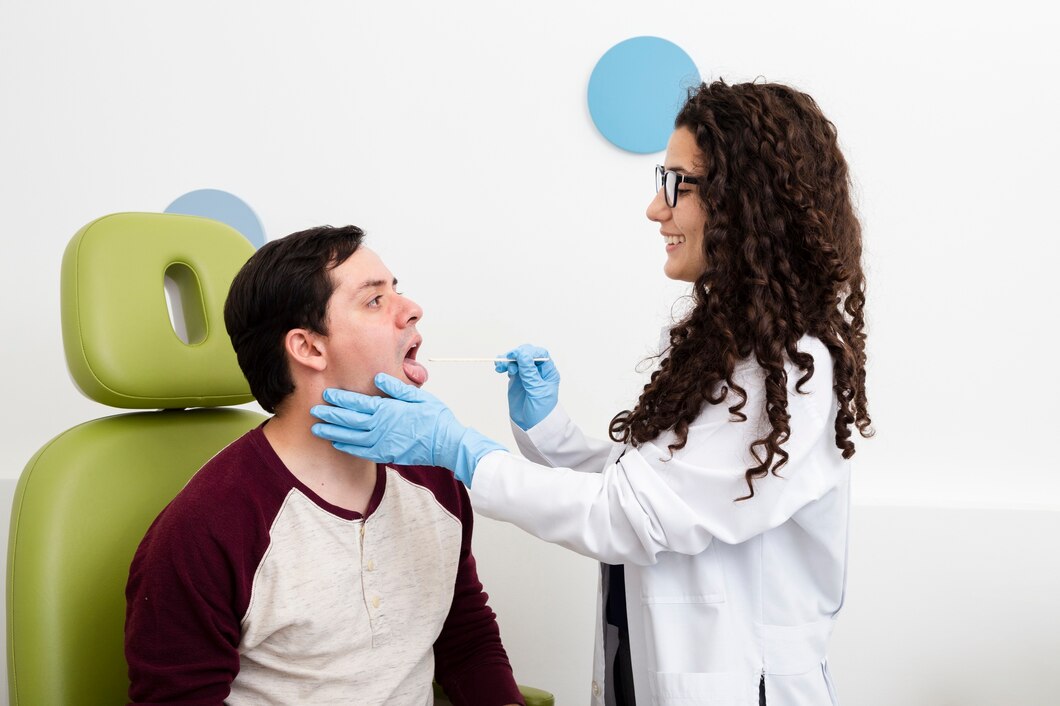When to Head to the Dentist for an Aching Tooth
Tooth pain is more than just an inconvenience—it’s a signal that your body is trying to tell you something important about your oral health. From a dull throb to sharp pangs, understanding when to see a dentist can save you from more severe issues down the line. For many, tooth pain is common, but knowing when it requires professional attention is crucial.
The Language of Tooth Pain
Tooth pain isn’t a one-size-fits-all signal. It can manifest in various ways, each pointing to a unique issue. Some experience a persistent, dull ache, while others might only feel pain when biting down or eating something hot or cold. These varying sensations can indicate different problems, ranging from minor sensitivity to more serious dental issues.
A dull, constant pain might be a sign of gum disease or an abscessed tooth. This sort of discomfort is often easy to overlook, but it can escalate into something more significant if not addressed quickly. Conversely, sudden sharp pains could suggest a crack or cavity in the tooth. Such pain typically demands immediate attention, as it can quickly worsen if left untreated.
By recognizing these distinct types of pain, individuals can better communicate their symptoms to their dentist. This not only helps in diagnosing the problem but also contributes to more effective treatment plans. Understanding your specific type of tooth pain is the first step in determining whether you need professional intervention.
What’s Causing That Tooth Pain?
Understanding the root cause of tooth pain is essential for effective treatment. Several common issues can lead to toothaches, each with its unique characteristics and implications for your oral health.
One prevalent cause of tooth pain is dental cavities. These holes in the teeth occur when plaque builds up and erodes the enamel. If untreated, cavities can penetrate deeper layers of the tooth, leading to more severe pain and potential infection. Regular dental check-ups are vital to catch and treat cavities early.
Gum disease is another frequent culprit. This condition can cause the gums to become inflamed and recede, which exposes the tooth root and leads to pain. Gum disease is often linked to poor oral hygiene, and maintaining a consistent cleaning routine can help prevent its onset.
Tooth infections, or abscesses, can also result in significant pain. These infections occur when bacteria enter the tooth or surrounding gums, causing swelling and pus formation. An abscessed tooth is a critical condition that requires immediate dental care to prevent the infection from spreading to other parts of the body.
Dentists to the Rescue
When dealing with tooth pain, a dentist can be your best ally. These professionals possess the expertise to diagnose and treat a wide range of dental issues, offering relief and preventing further complications.
Early intervention by a dentist can make all the difference. Prompt treatment of cavities, for example, can prevent further decay and avoid more invasive procedures like root canals. Addressing gum disease early can also halt its progression and preserve your dental health.
Regular visits to the dentist can also serve as a preventive measure. During these appointments, dentists can spot potential problems before they become painful or more challenging to treat. This proactive approach saves time and discomfort in the long run, ensuring your oral health remains in check.
By consulting a dentist at the first sign of trouble, you not only address the immediate issue but also take a crucial step towards maintaining optimal oral health over the long term.
Recognizing the Time for a Dentist Visit
Knowing when to see a dentist for tooth pain can be challenging, but some signs indicate the need for professional care. Understanding these symptoms can help you decide when it’s time to make an appointment.
Persistent pain is a primary indicator. If your toothache lasts more than a day or two, it’s time to seek dental advice. Prolonged pain could signify an underlying issue that needs addressing, such as an infection or decay, which may lead to the need for dental implants if the tooth cannot be saved.
Swelling around the tooth or jaw is another sign that should not be ignored. This could indicate an abscess or gum disease, both of which require prompt attention to prevent further complications, including the possibility of needing dental implants down the line.
Heightened sensitivity to hot or cold foods and beverages can be a concerning signal. While some sensitivity is normal, a sudden or intense reaction may indicate the presence of a cavity or exposed roots that require treatment. If these issues become severe, dentists like those in South Jordan can provide effective solutions, such as dental implants, to alleviate the discomfort.
By paying attention to these signs, you can make informed decisions about when to visit the dentist. It’s always better to err on the side of caution and address potential problems sooner rather than later.
Stopping Tooth Pain Before It Starts
Preventing tooth pain starts with good oral hygiene and healthy habits. By taking proactive steps, you can maintain your dental health and reduce the risk of painful issues.
Brushing twice daily with fluoride toothpaste is fundamental. This simple practice helps remove plaque and bacteria that lead to cavities and gum disease. Complement your brushing routine with daily flossing to clean between the teeth and along the gum line.
Regular dental check-ups play a crucial role in prevention. During these visits, dentists can clean your teeth professionally, removing tartar buildup and identifying any early signs of dental problems. Aim for at least two appointments per year to keep your oral health on track.
The diet also plays a significant role in maintaining healthy teeth. Limiting sugary snacks and drinks reduces the risk of cavities while consuming a balanced diet with plenty of calcium and vitamins supports strong teeth and gums.
Conclusion
Tooth pain is not just a nuisance; it’s a signal from your body that shouldn’t be ignored. By understanding the types of pain, their causes, and the importance of seeking timely dental care, you can better manage your oral health. Remember, prevention is your best defense against tooth pain. By maintaining good oral hygiene, attending regular dental check-ups, and making healthy lifestyle choices, you can minimize the risk of dental issues.
Keep an eye for more news & updates on HipHopHipHop!






